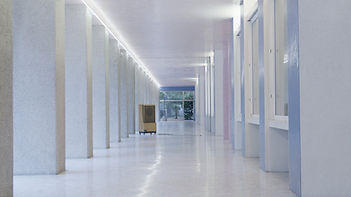CURRENT PROJECTS

Risible is out 6 February, 2024!
Available as a free e-book via Open Access here
Purchase in hard copy here and here
"A virtuoso meditation on laughter, music, and sound reproduction, moving from transfixing insights drawn from philosophical texts and recorded sound objects to a bold vision of laughter as a sonorous force that troubles our conceptions of humanity and rationality. How sounds acquire meaning, how they make sense or nonsense or lie somewhere between the two: Delia Casadei's Risible considers these fundamental issues in startling and thought-provoking ways."
— Carolyn Abbate, coauthor of A History of Opera
"There is something thrillingly unclassifiable about this book. While it indexes music studies, it is clearly a profound work of cultural theory. Casadei reveals how laughter—a deceptively minor though ubiquitous phenomenon—holds relevance for every dimension of life and its biopolitical regulation via gender, race, labor, and reproduction. She also reminds us that there is much genealogical work yet to be done on mediatized, electrified soundworlds of the twentieth century and offers a powerful, welcoming push in new directions."
— Amy Cimini, author of Wild Sound: Maryanne Amacher and the Tenses of Audible Life
My own monthly radio show with Rete Toscana Classica starting October 2024:
Senti qui: bollettino di informazione musicale
I have just started working for one of my favorite radio stations in the world, Rete Toscana Classica, a classical radio funded by the Tuscan Ministry of Culture that has been making waves since 2002! The show I conduct is called Senti qui: bollettino di informazione musicale. It combines updates on cool concerts and musical events in Tuscany with at least one musicological publication that I think is exciting and cool. You can listen live on Rete Toscana Classica (91.3 Hz) every second wednesday at 15.40, or tune in digitally on Rete Toscana Classica's website, or stream it whenever you like on Spotify, or Amazon music, Youtube, and Apple Podcasts!
It has been exciting and incredibly fun to teach this 6-week music and politics course in my home language (Italian) and home town (Pisa)! Il Canto politico is offered as part of the pioneering Open University initiative at the Istituto Franco Serantini (an institute dedicated to the history and research of anarchist and left-wing political activism in Pisa). The courses of the Istituto Serantini, which are proving extremely well-received and attended, are free of charge, are university-level classes on underserved intellectual topics regarding politics, art, the environment, and local and global history. My contribution is a starter course on critical listening to political music across four key genres of the mid twentieth century: Blues, Folk, Rock, Pop, and Hip Hop. Pisa has a small musicology faculty and university-level musicology is often inaccessible to a general audience, so this course is an occasion for people of different backgrounds to come together and examine their own relationship to various repertoires associated, in different and contrasting ways, with political activism.

New opera review out in Sound Stage Screen, July 2024:
"Opera and the Art of Anesthetics"
Review-essay of the opera Il diluvio universale. Music by Gaetano Donizetti, libretto by Domenico Gilardoni. Riccardo Frizza (Conductor), Masbedo (Project, directors, live directors and costumes), Mariano Furlani (Visual dramaturgy), 2050+ (Scenography). Teatro Donizetti, Bergamo (November–December 2023).

New article out in Sound Stage Screen:
"The Acoustemology of the Witch:
Hearsay, Sound Recording, and the Zaccheo Tapes"
This article is the first output of a long-term collaborative examination (with Marina Romani) of oral histories from the 1950s-70s of magical practices, and specifically witchcraft, in Central italy. Our first site of examination is Villa Zaccheo, in the province of Teramo, Abruzzo, which was documented by Cesare Bermani between 1959-1976 as a site where witches were said to be present and active. By working jointly on the tapes in the Archivio Cesare Bermani in Orta San Giulio, and interviewing people in Villa Zaccheo, Marina and I are asking what sound recordings can tell us about the way witches were conceived, understood, perceived and warded off in the twentieth-century. What changes when the documents of witchcraft become aural rather than written, as was the case with the infamous witch-hunts of the counter-reformation? What does economic and industrial development have to do with the way witches were known at the times of these oral histories? In the twentieth-century, what does it mean to know a witch and be known by a witch by ear?

"I WANT TO FEEL WHEN I PLAY THE PIANO, LIKE I DO WHEN I LOOK AT TWOMBLY'S WORK"
A conversation between Delia Casadei and Myra Melford about Cy Twombly, yearning, gesture, and sound
"Portrait of a Laugh/Ritratto di una risata" is out in Ritratto di Città 20/20.000 Hz (Marsilio, 2024)
I was thrilled to be a consultant, contributing writer and featured participant in Masbedo's touring video-installation Ritratto di Città 20/20.000Hz, winner of the 2022 Italian Council Art prize from the Italian Ministry of Culture, and on show at Milan's Museo del Novecento April-July 2024. This work, featuring interview, performances, sound and video art, and a bespoke art book, is a creative re-enactment of Luciano Berio and Bruno Maderna's 1955 Ritratto di città, one of their earliest works, and produced in Italy's first electronic music studio, the Studio di Fonologia. My essay re-visits and re-imagines the atmosphere of the Studio and the significance of the experimentations on the voice in those years through an examination of a sound that haunts the production of those years: Cathy Berberian's voice, and particularly her laughter.


%2C%20Backstage%20image%2C%20Courtesy%20the%20artists%2C%20Ph_%20Beat.jpg)